AITA for Refusing to Let My MIL Come Over and Sending Her a Receipt for Our Daughter’s Fridge?
Parenting today can be an adventure of setting your own rules—and sometimes that means bucking traditional methods handed down by previous generations. In our story, a mom in her early thirties is determined to foster autonomy in her children, even when it comes to food.
With a 5-year-old daughter and a baby boy on the way, she’s set up a tiny, semi-functional kitchen where her daughter chooses her own snacks and even dabbles in making simple dishes. This innovative approach is designed to help her daughter learn self-regulation and independence from an early age.
However, when her mother-in-law (MIL) comes to town, these modern parenting choices are met with fierce resistance. MIL, steeped in old-school values, disapproves of the flexible food system, and her actions soon spiral out of control. What began as a minor disagreement quickly escalates into a full-blown family conflict that challenges both respect and boundaries.

‘AITA for Refusing to Let My MIL Come Over and Sending Her a Receipt for Our Daughter’s Fridge?’
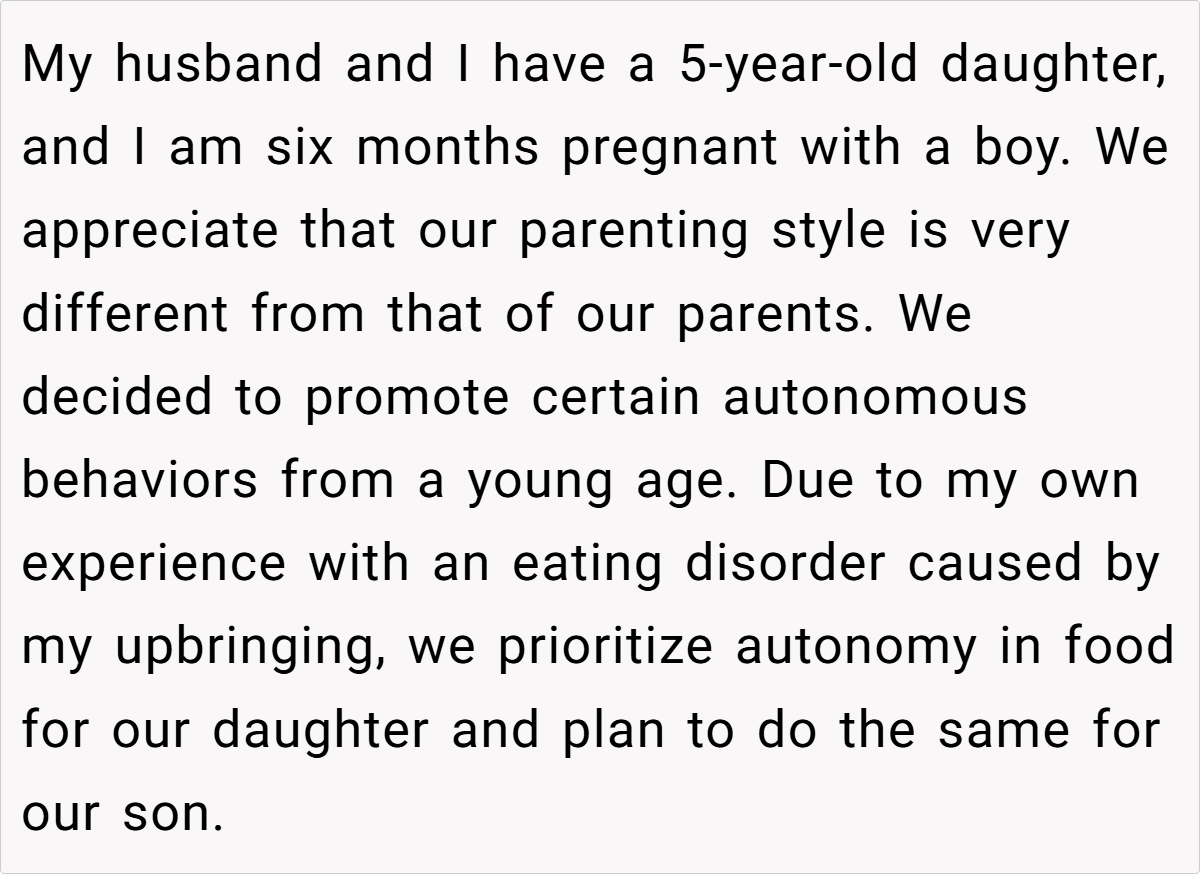
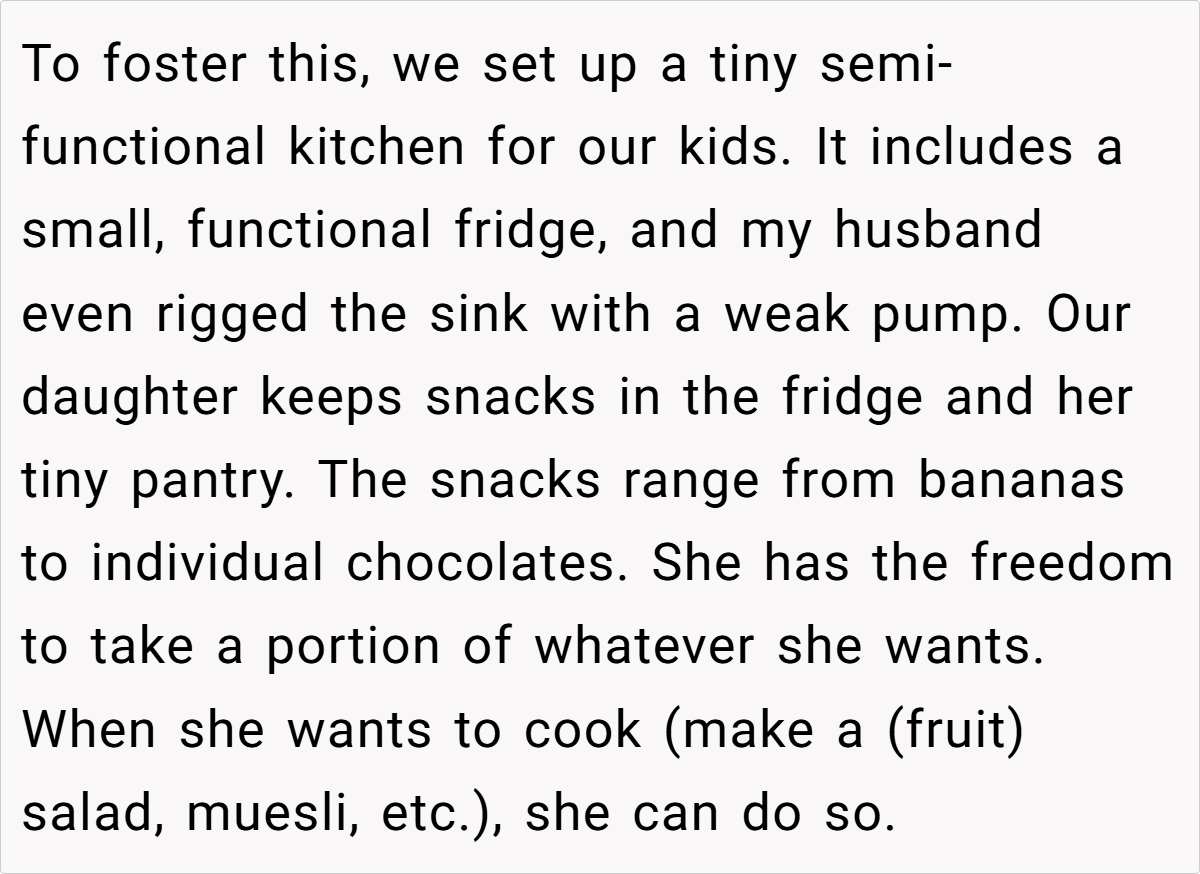
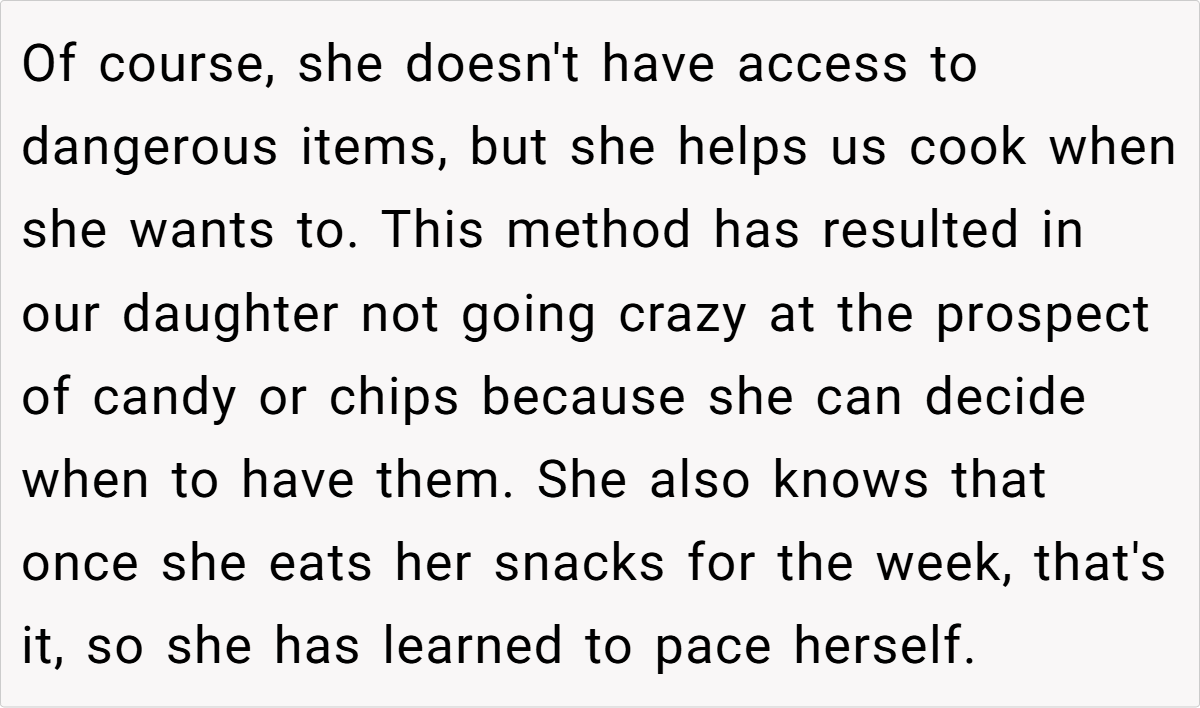
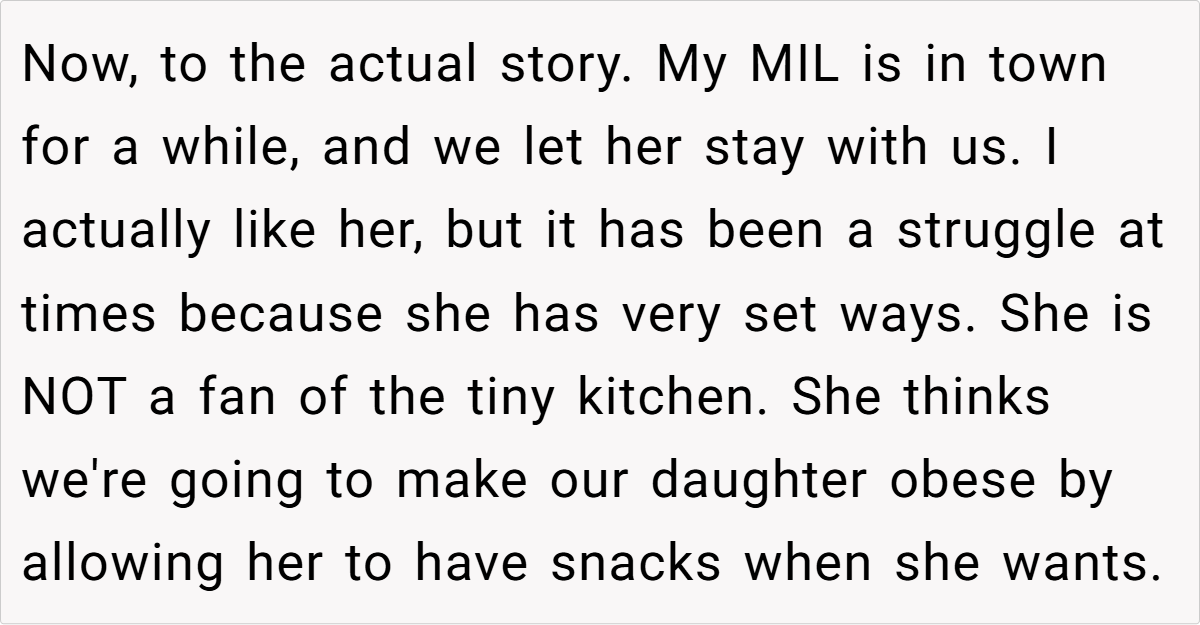
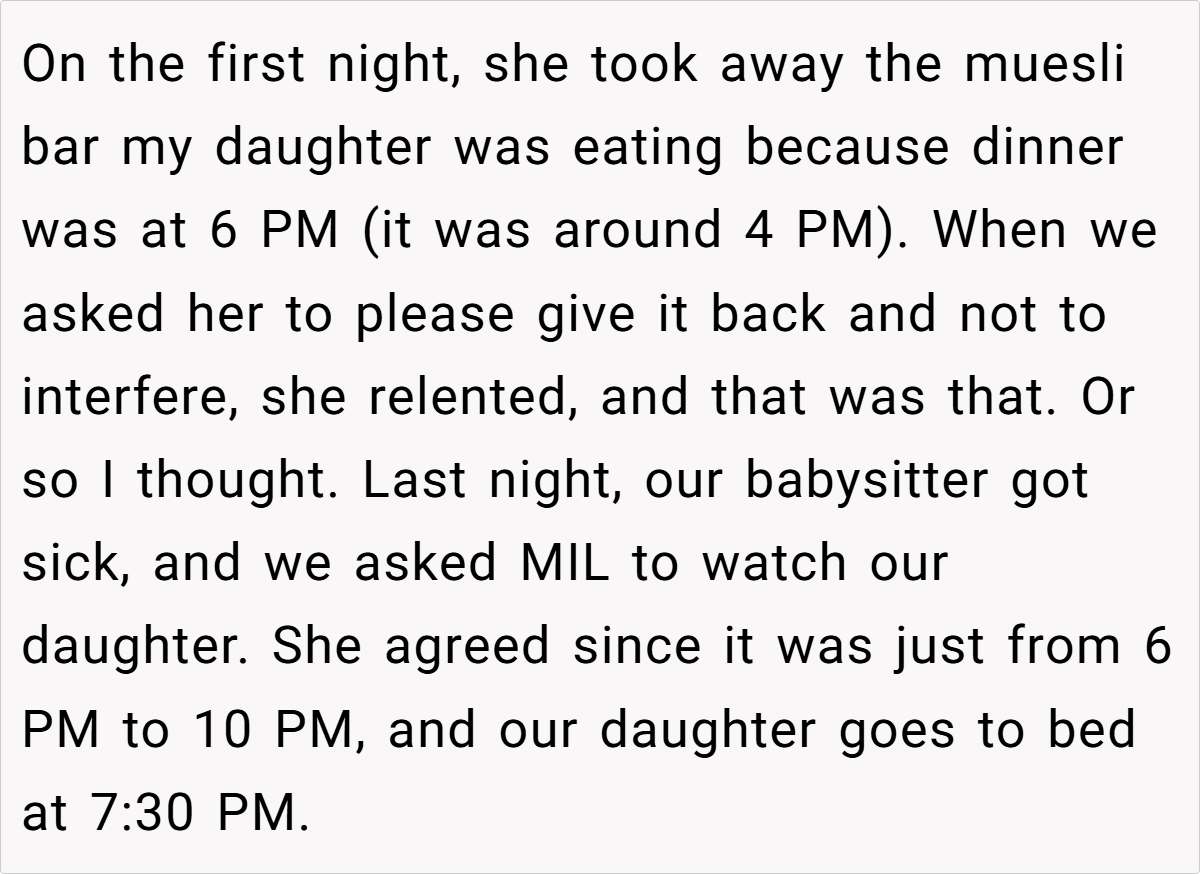
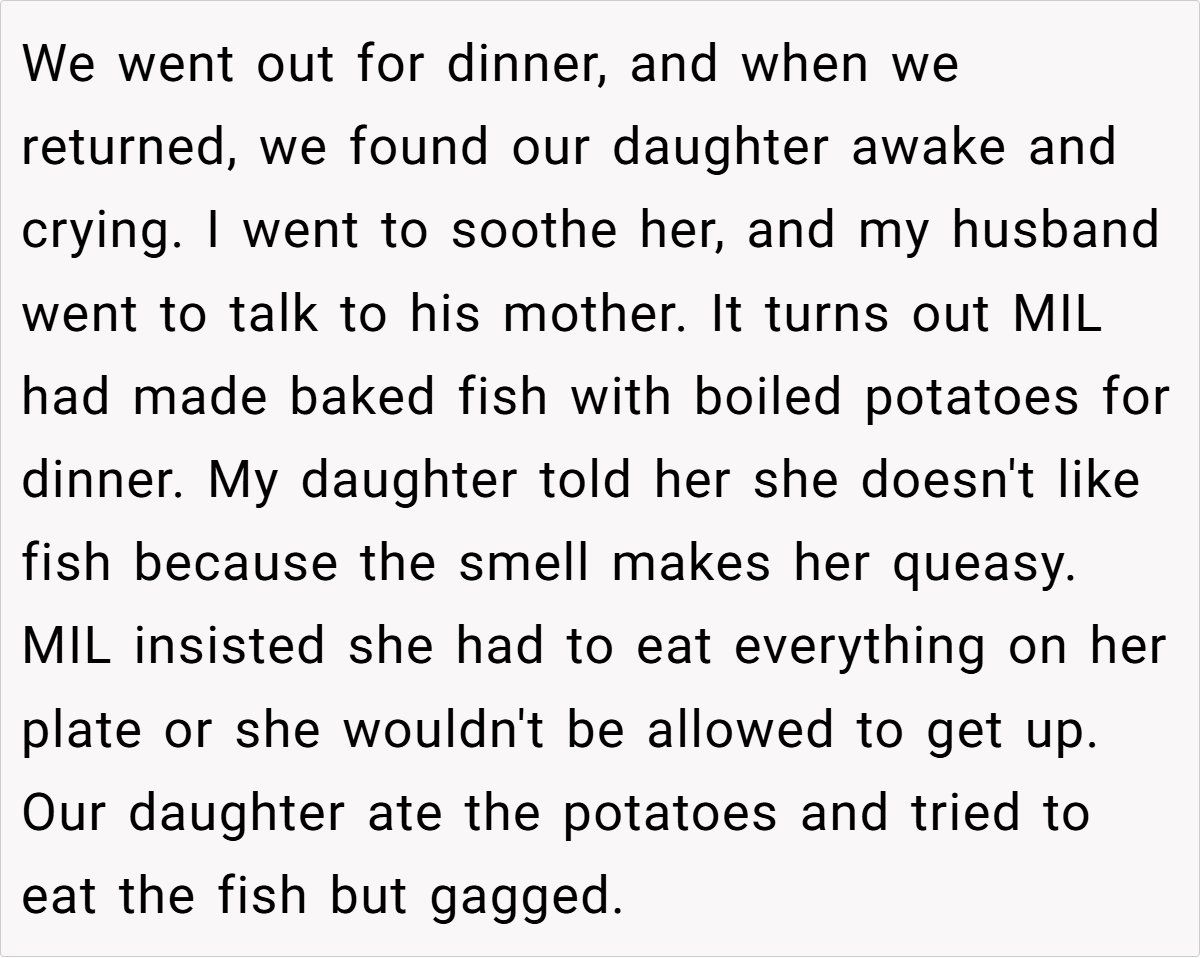
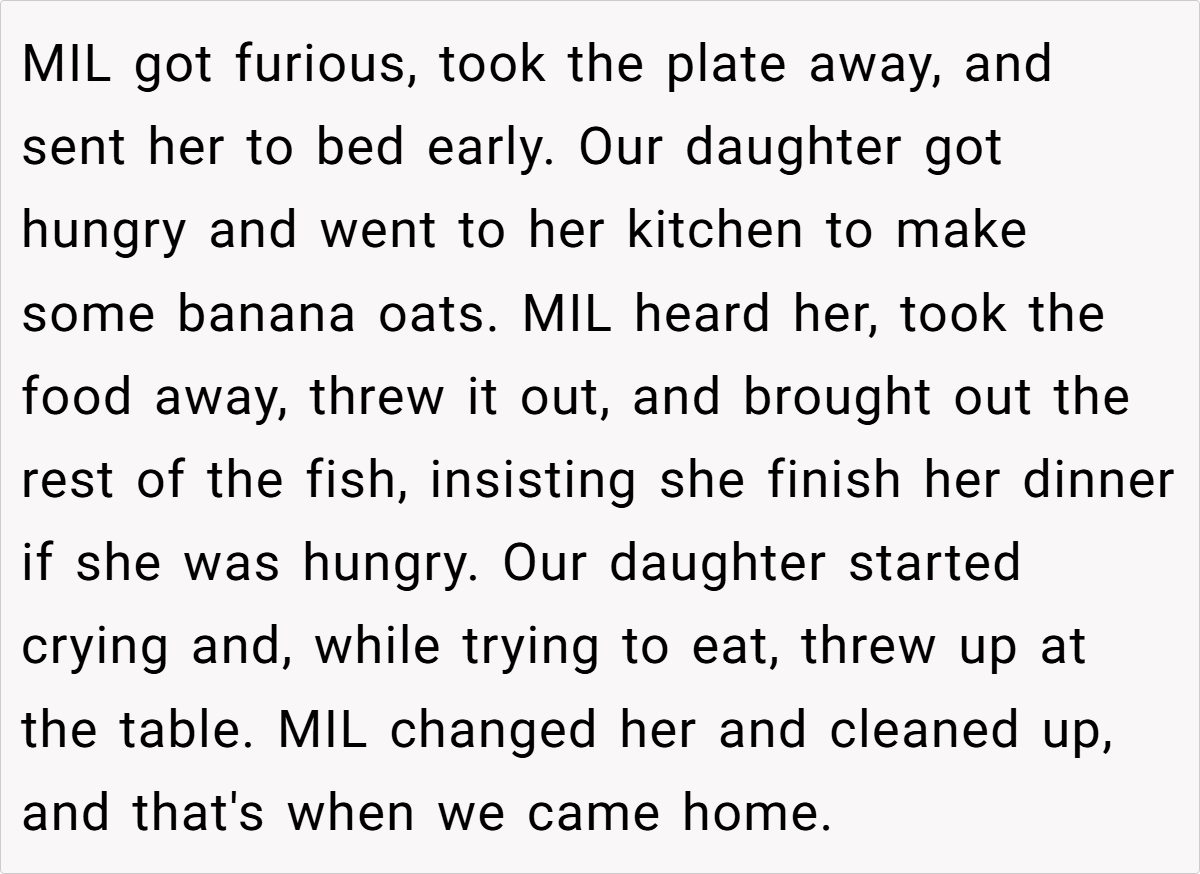
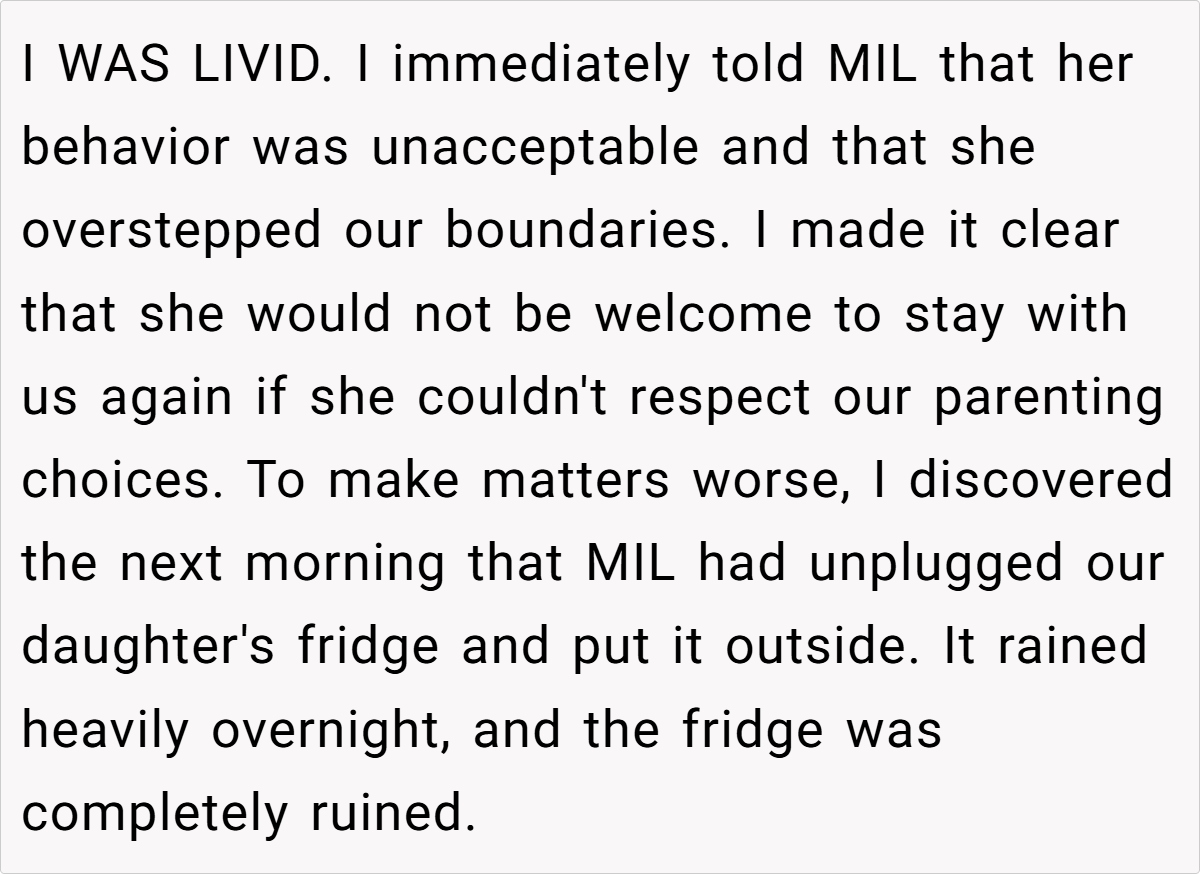
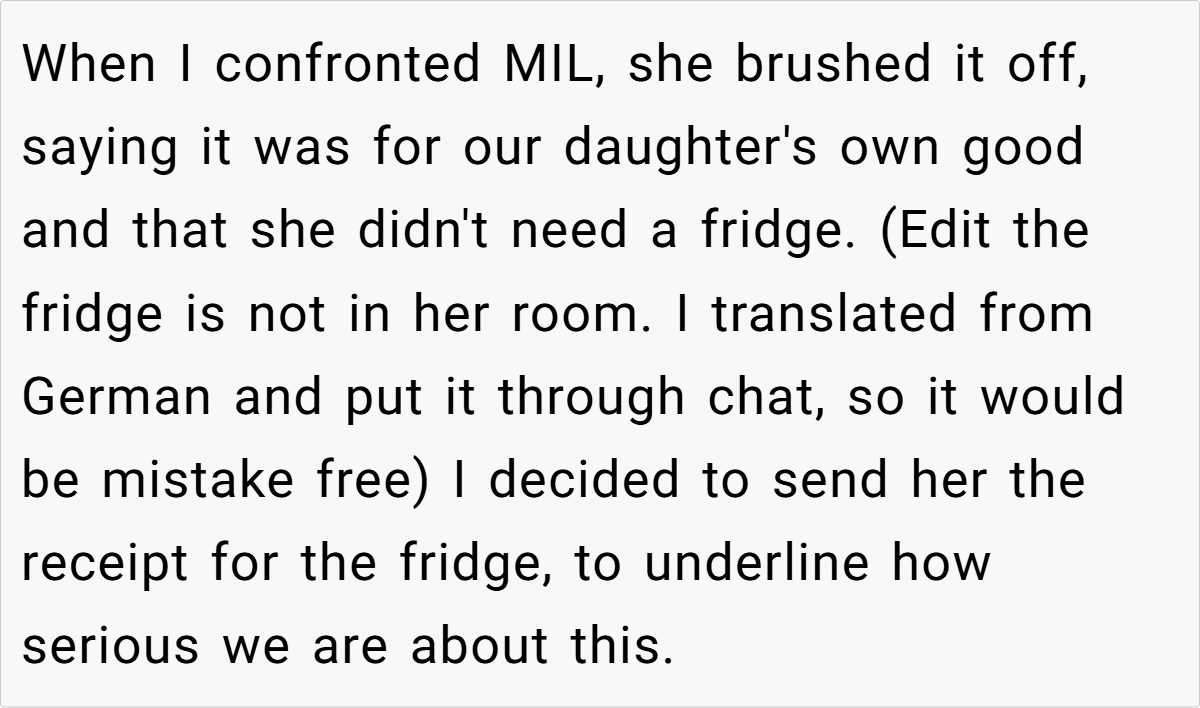
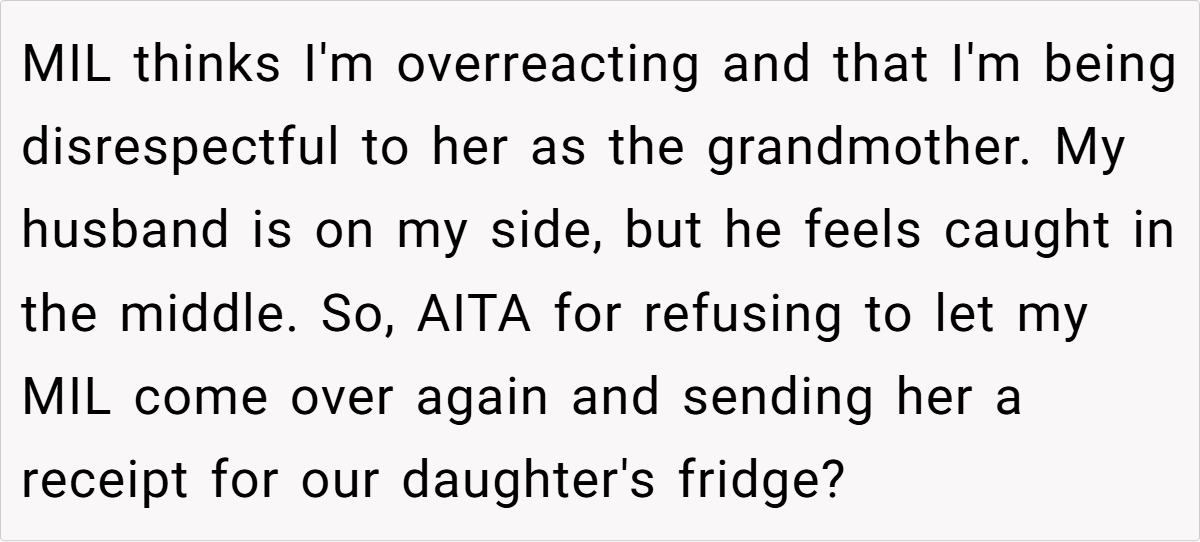
Letting family members overstep boundaries can be challenging, especially when generational differences collide with modern parenting philosophies. According to clinical psychologist and parenting expert Dr. Laura Markham,
“Establishing clear, respectful boundaries in family relationships is essential for preserving both your child’s autonomy and your peace of mind.” In our case, the OP’s approach to fostering independence through a child-friendly kitchen is a thoughtful strategy aimed at nurturing self-regulation and healthy eating habits.
Dr. Markham explains that when parents create an environment where children learn to manage their own food intake, it not only empowers them but also prevents the overindulgence often seen when children are forced to finish everything on their plate.
“It’s about teaching kids to listen to their own hunger cues rather than following external demands,” she adds. The OP’s method, which allows her daughter to choose when and how much to eat, is supported by research showing that autonomy in food choices can help prevent issues like overeating and eating disorders later in life.
Conversely, the MIL’s actions—insisting that the child eat foods she dislikes, forcing her to clear her plate, and even damaging property—reflect an outdated and authoritarian approach that can have harmful psychological impacts. Dr. Markham warns, “When a child is forced to eat against their will, it can lead to a negative relationship with food and authority, creating stress and anxiety.” This overbearing method not only undermines the child’s autonomy but also disrupts the trust between the child and the caregiver.
In our scenario, the OP’s decision to enforce her parenting boundaries by cutting off MIL’s unsupervised access is a strong move toward protecting her child’s well-being. It is also an important assertion of the parents’ right to determine their family’s lifestyle.
Dr. Markham’s insights remind us that while grandparents often mean well, their involvement must always respect the established rules and values set by the parents. The balance between traditional wisdom and modern parenting is delicate, and in this case, the OP’s modern approach is clearly in the right.
Moreover, by sending the receipt for the ruined fridge, the OP is not only documenting the incident but also making a firm statement about accountability. Such actions serve as a reminder that boundaries are non-negotiable when it comes to a child’s well-being—a lesson that many families can appreciate in today’s evolving parenting landscape.
Here’s how people reacted to the post:
Overall, the redditors are fully supportive of the OP’s decision. They agree that the MIL’s actions—forcing unwanted food on a child, overriding parental choices, and even damaging property—are completely unacceptable.
Many commenters stress that fostering autonomy through a child-friendly kitchen is a modern, healthy approach, and that any interference from grandparents must respect parental boundaries. In short, the community believes that the OP’s firm stance is not only justified but essential for protecting her child’s well-being.
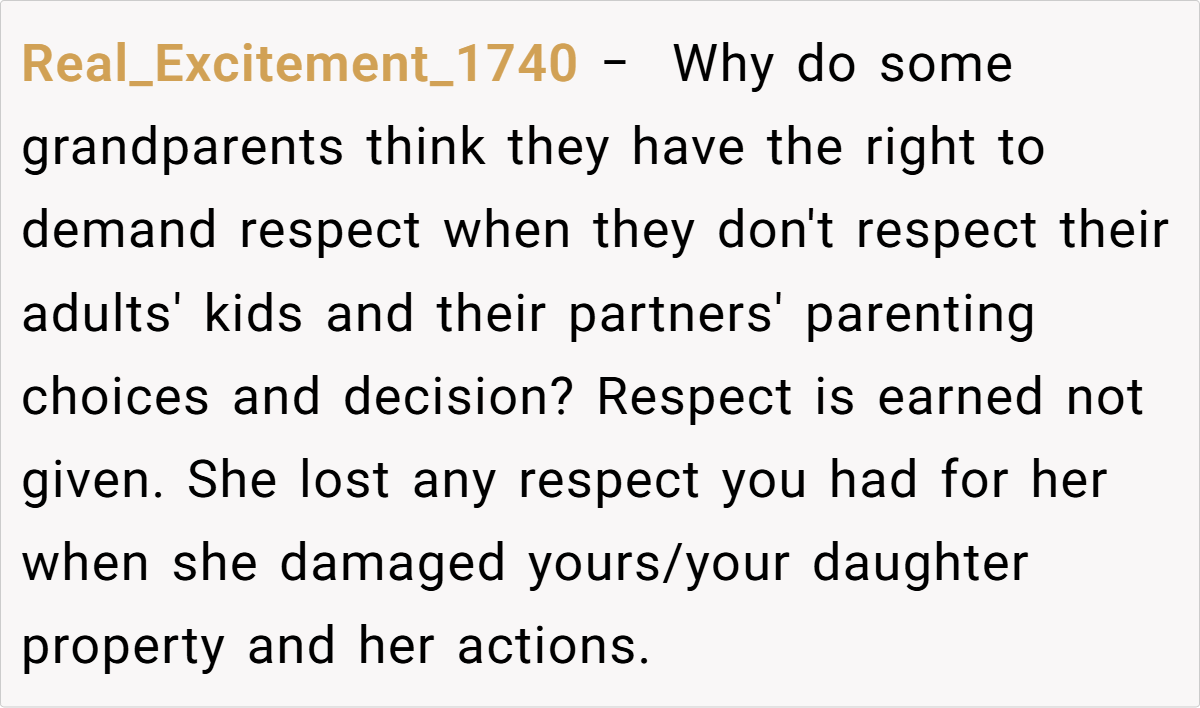
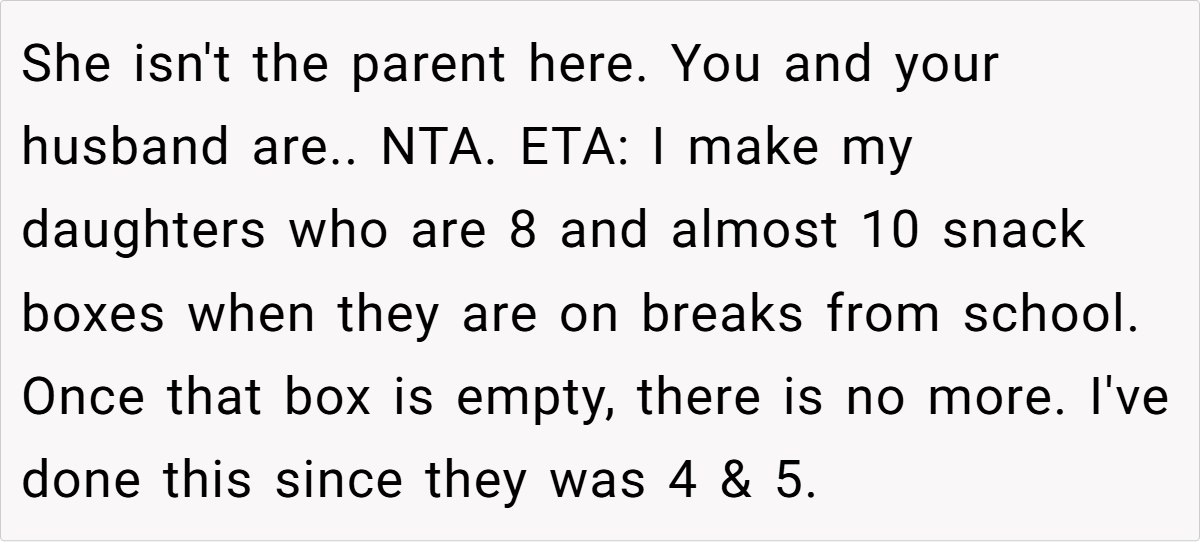

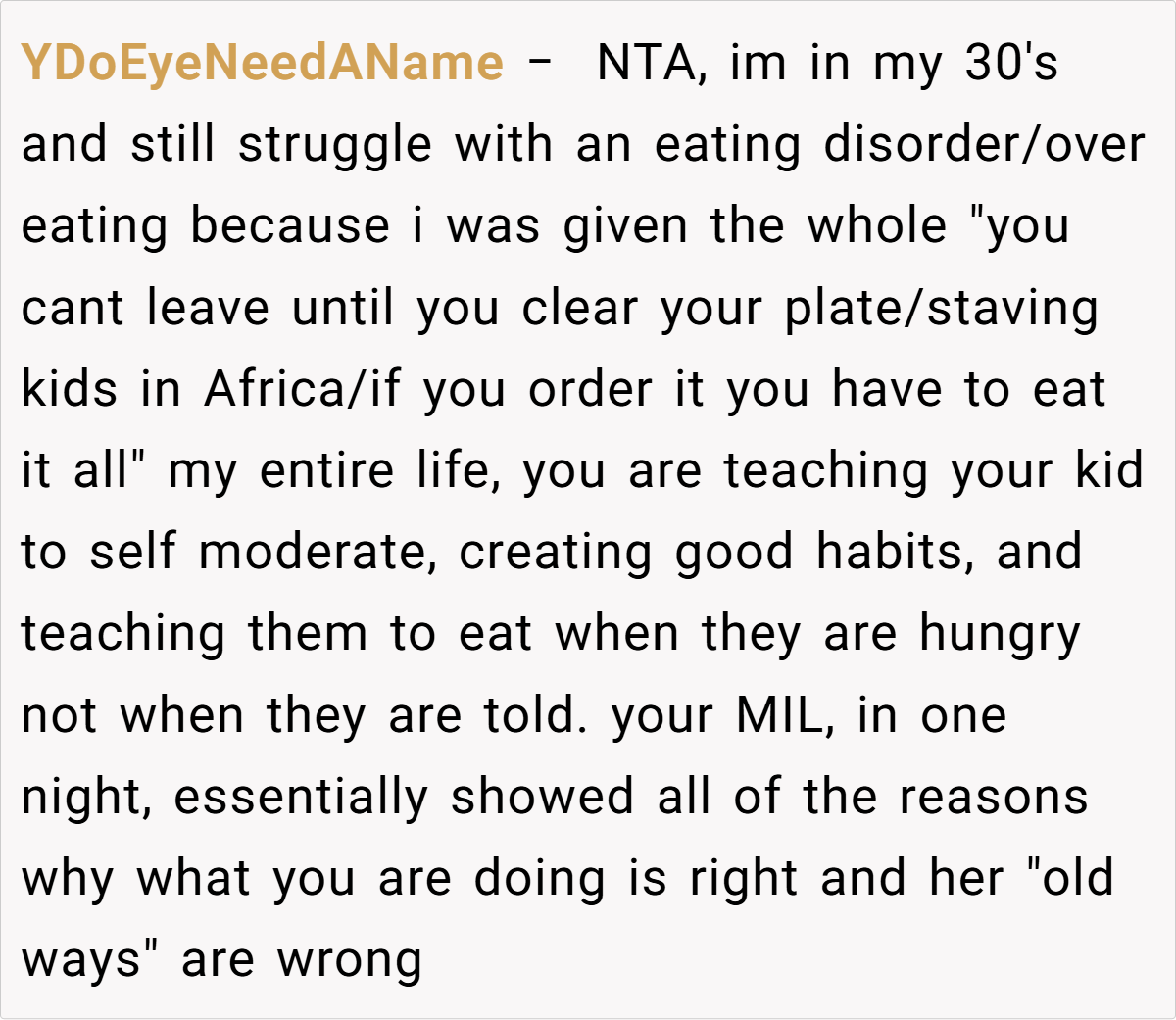
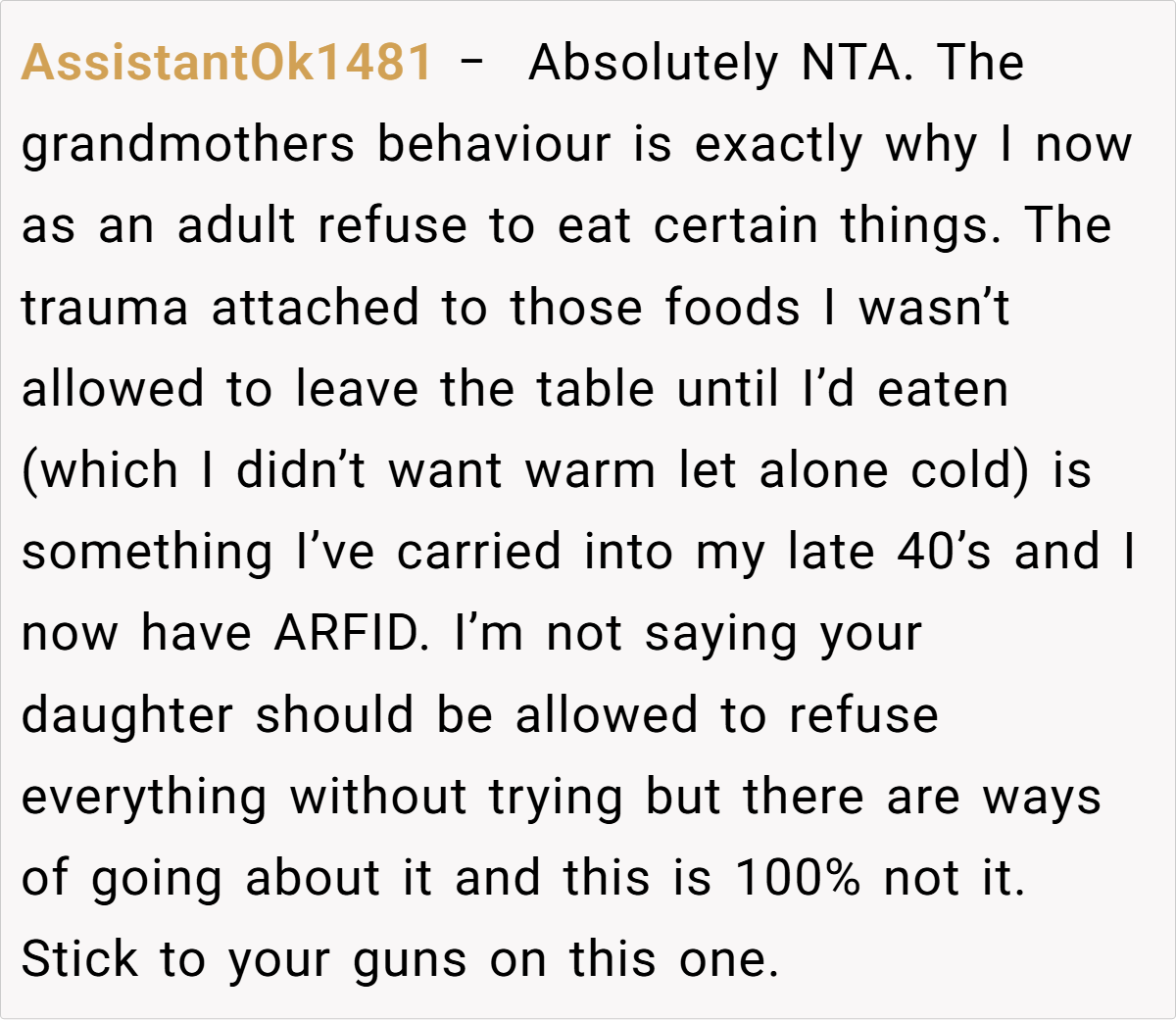
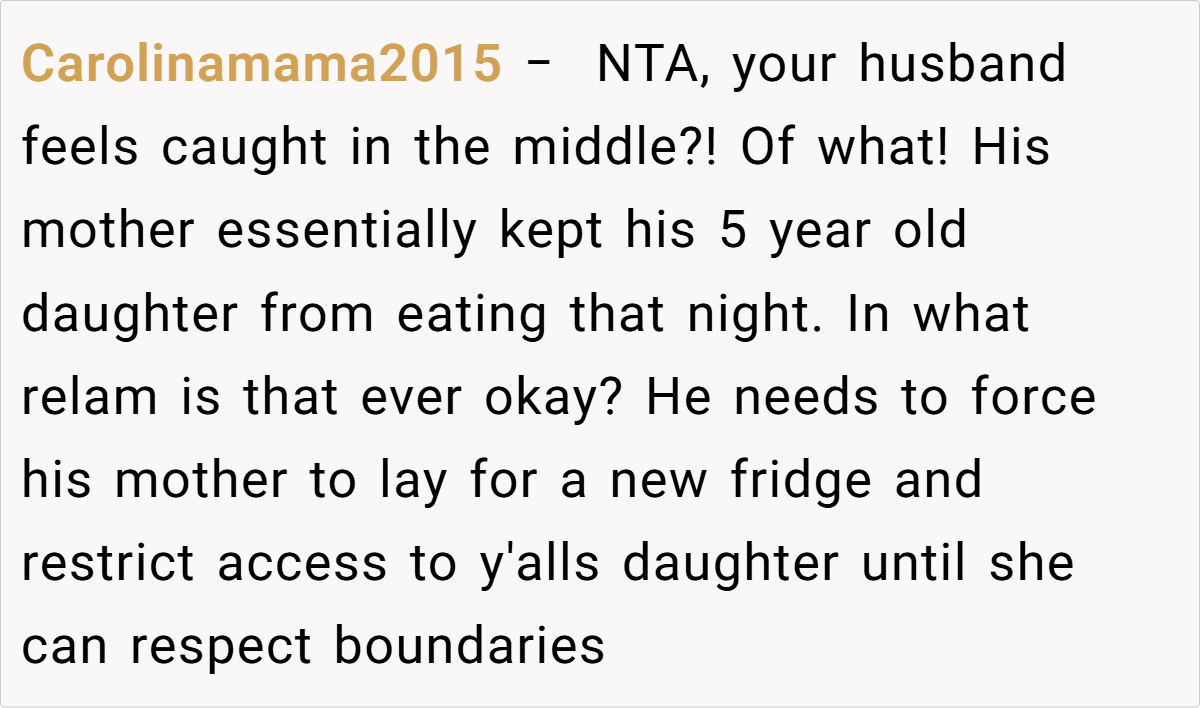

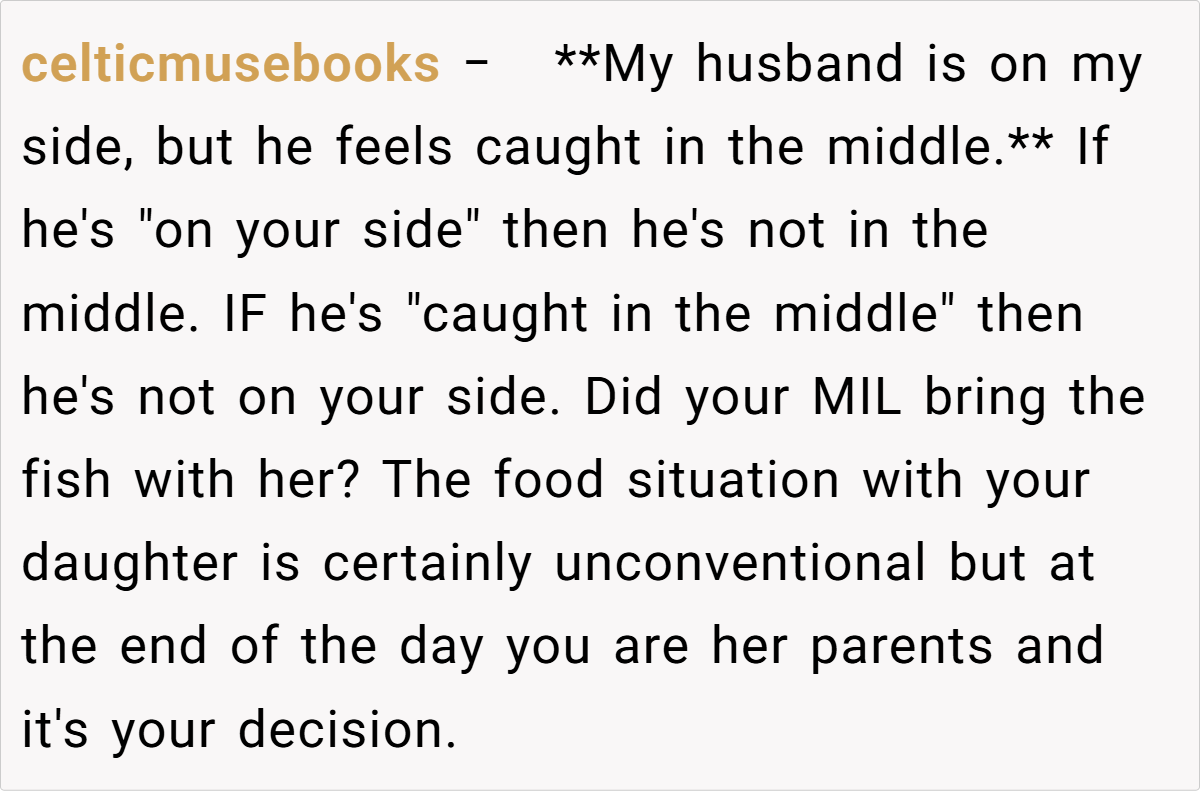
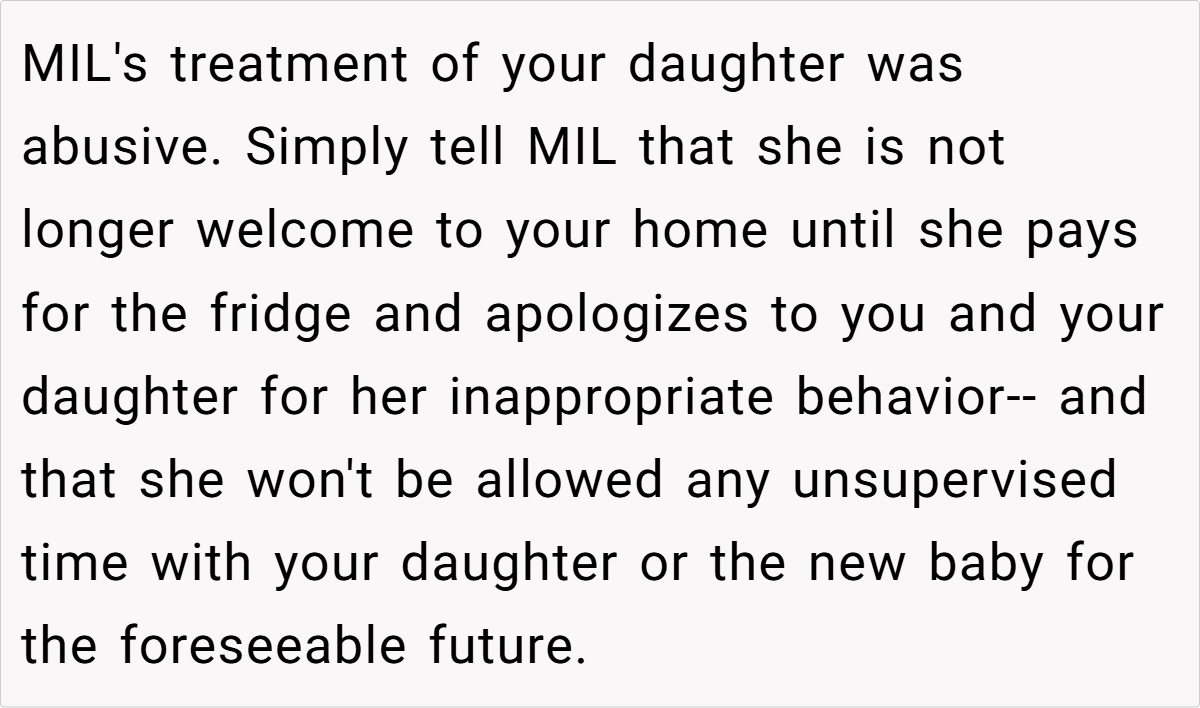
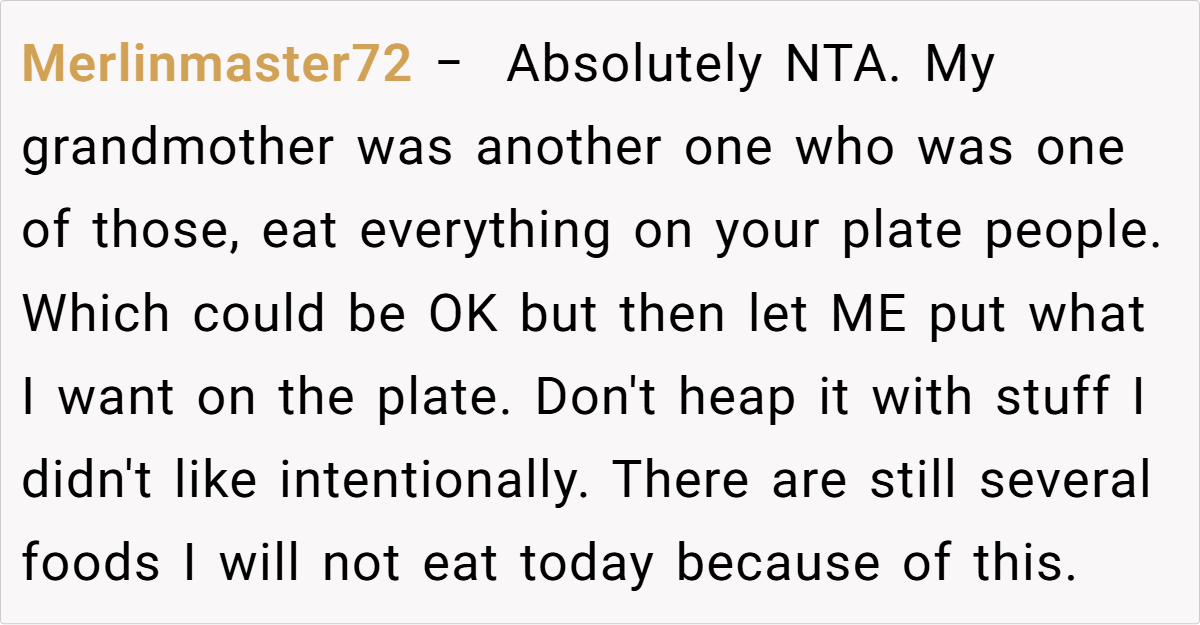

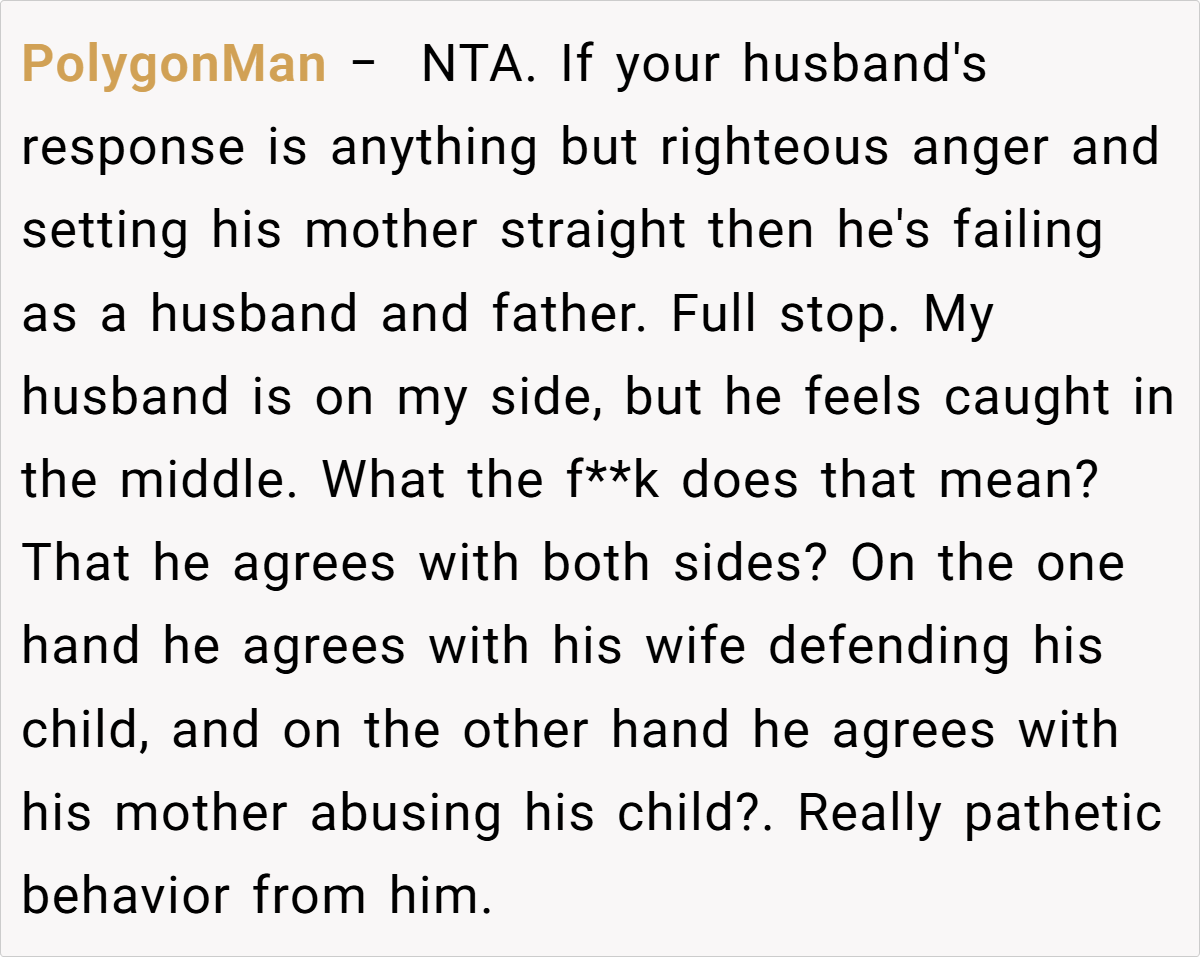

Ultimately, parenting is about creating a safe, nurturing environment where children can thrive—and that sometimes means standing up to family members who refuse to adapt. Our OP’s unwavering commitment to her modern parenting approach is commendable, especially when faced with the intrusive and damaging behavior of her MIL.
It raises a crucial question: What boundaries are you willing to set to protect your child’s autonomy and well-being? How would you handle a situation where family traditions clash with your parenting choices? Share your thoughts and experiences in the comments below!

